Nurse educators, also known as nursing instructors, are registered nurses who train and mentor future nurses—playing a vital role in addressing the growing nursing workforce shortage. With employment for nursing instructors projected to grow 18% from 2022 to 2032—nearly three times the average for all occupations—demand is rapidly rising. This surge is driven by faculty retirements, limited nursing school capacity, and a critical need to prepare more nurses. As a result, becoming a nurse educator is an increasingly attractive career path for those who enjoy teaching and want to make a lasting impact on healthcare.
This guide provides a comprehensive overview of the nurse educator career path, including the steps to enter the field and the responsibilities involved. It also offers insights on how to thrive in this meaningful role, which is essential to shaping the future of nursing.
What Is a Nurse Educator or Nursing Instructor?
A nurse educator (or nursing instructor) is an experienced registered nurse with advanced education, often at the master’s or doctoral level, who teaches nursing students or provides clinical training to licensed nurses. Nurse educators bridge the gap between clinical practice and academia by translating real-world experience into effective curricula and mentorship. They typically have significant autonomy in designing curricula and evaluating students, particularly in academic environments. Unlike staff nurses who focus primarily on direct patient care, nurse educators concentrate on teaching others—whether in a college classroom, a clinical simulation lab, or a hospital education department.
In practice, nurse educators wear many hats. In academic settings, they serve as faculty members such as instructors, professors, or clinical faculty who plan courses, deliver lectures, oversee clinical rotations, and assess student competencies. In hospitals or clinical environments, they often work as staff development or clinical nurse educators, orienting new nurses, leading in-service training, and keeping staff updated on the latest evidence-based practices. In both settings, they are expected to maintain clinical credibility, and many continue to practice part-time to ensure their teaching remains practical and relevant.
According to the American Nurses Association, “nurse educators are actively shaping the future of nursing by equipping nurses with the skills and knowledge required to provide high-quality healthcare.” This means they not only teach medical content but also foster critical thinking, ethical decision-making, and a commitment to lifelong learning.
The American Association of Colleges of Nursing emphasizes that today’s nurse educators must prepare a “strong and diverse nursing workforce to advance the health of the nation”—highlighting their crucial role in promoting diversity, equity, and inclusion in healthcare. A nurse educator is a teacher, mentor, and role model who guides nursing students and practicing nurses to ensure the workforce remains competent and prepared for the evolving challenges of healthcare.
What Do Nurse Educators Do?
Nurse educators help shape the nursing workforce by blending clinical expertise with a strong commitment to teaching and mentorship. Their responsibilities span classroom instruction, curriculum development, and supervision of clinical training, as well as mentoring students and supporting continuing education for practicing nurses. Whether in academic or clinical settings, they serve as leaders, role models, and advocates, ensuring nurses are well-prepared to meet the evolving demands of healthcare.
| Role | Description |
|---|---|
| Classroom Instruction | Teach nursing theory and evidence-based practice in academic settings. |
| Clinical Supervision | Guide students during clinical rotations to apply knowledge in real settings. |
| Curriculum Development | Design and update nursing course content to reflect current standards. |
| Student Assessment | Evaluate student progress through exams, assignments, and clinical evaluations. |
| Mentorship and Advising | Support students’ academic and professional development. |
| Continuing Education | Provide ongoing training for practicing nurses to update skills and knowledge. |
| Faculty Collaboration | Work with other educators to coordinate programs and share best practices. |
| Research and Scholarship | Contribute to nursing education through academic research and publication. |
| Program Evaluation | Assess the effectiveness of nursing education programs for quality improvement. |
| Advocacy and Leadership | Promote nursing education policies and serve as leaders in academic settings. |
It’s important to note that the scope of practice for nurse educators can depend on their credentials and state regulations. Most nurse educators are licensed RNs (some are Advanced Practice Registered Nurses) and must adhere to their state’s nurse practice act when performing any clinical function. For example, an educator who is also a Nurse Practitioner can independently perform certain clinical duties and teach NP students in states where NPs have full practice authority, whereas an educator who is an RN (not an APRN) would supervise and teach within the RN scope, often in collaboration with physicians or NPs for advanced procedures.
Additionally, if an educator works in a patient education role (say, as a diabetes nurse educator or childbirth educator), they might need separate certification (e.g., Certified Diabetes Care and Education Specialist) and follow guidelines specific to that specialty.
Nurse educators have a dual identity—as nurses and teachers. In day-to-day life, one might find them one minute revising a lesson plan or reviewing the latest clinical guidelines, and the next minute at a patient’s bedside with a student, saying “Let’s walk through this procedure together.” Their responsibilities are broad but center on one goal: to prepare nurses (new or experienced) to deliver safe, high-quality care. As healthcare evolves, nurse educators continually update what and how they teach, thereby directly influencing patient outcomes through the nurses they train.
Where Do Nurse Educators Work?
Nurse educators work in a variety of settings, each offering unique opportunities to teach and support nursing students and professionals. Here is a list of common work settings for nurse educators:
1. Colleges and Universities
Nurse educators frequently find employment in colleges and universities, where they teach nursing students at the associate, bachelor’s, or graduate level. In these academic settings, they are responsible for developing and updating nursing curricula to ensure it meets current healthcare standards and educational goals. Their duties include delivering lectures, facilitating classroom discussions, and supervising clinical training to provide hands-on learning experiences. They also evaluate student performance through exams, practical assessments, and ongoing feedback to support student growth. Additionally, many nurse educators in these roles engage in research, scholarship, and service activities, contributing to the advancement of nursing education and practice.
| Work Setting | Key Focus |
|---|---|
| Colleges and Universities | Teach nursing programs, develop curricula, supervise clinical training, and conduct research. |
| Community Colleges | Focus on hands-on training for associate degree and practical nursing programs. |
| Teaching Hospitals | Combine clinical teaching with ongoing staff education and training. |
| Clinical Simulation Labs | Facilitate hands-on practice using simulations and case scenarios. |
| Hospitals and Healthcare Systems | Lead staff development, onboarding, and continuing education for clinical staff. |
| Vocational and Technical Schools | Train LPNs, LVNs, and nursing assistants with practical skill-based instruction. |
| Online Education Platforms | Deliver virtual lectures, interactive content, and remote mentorship for nursing students. |
| Government and Public Health Agencies | Provide training for public health nurses and support workforce initiatives. |
| Consulting and Private Industry | Design nurse training and workforce development programs for healthcare and tech companies. |
| Continuing Education Providers | Develop and offer courses for licensed nurses to maintain certification and update skills. |
2. Community Colleges
Community colleges are a popular setting for nurse educators, where they primarily teach associate degree nursing programs and courses for practical nurses. These educators emphasize practical, hands-on training to equip students with the skills necessary for entry-level nursing positions. The curriculum is often tailored to meet the immediate demands of local healthcare facilities and to prepare students for licensure exams such as the NCLEX-PN or NCLEX-RN. Community college nurse educators also provide guidance and support to students as they transition into the nursing workforce. The environment tends to be more intimate and focused on accessible education, helping a diverse student population succeed in nursing careers.
3. Teaching Hospitals
In teaching hospitals and academic medical centers, nurse educators play a dual role by providing both classroom instruction and hands-on clinical training. They supervise nursing students during their clinical rotations, ensuring that theoretical knowledge is effectively applied in real-world patient care settings. Nursing instructors develop and deliver continuing education programs to update hospital staff on the latest evidence-based practices and protocols. This role demands a high level of clinical expertise alongside strong teaching and communication skills. The environment is dynamic and fast-paced, with a focus on integrating education directly into patient care.
4. Clinical Simulation Labs
Many nurse educators work in clinical simulation labs, where they create and lead interactive learning experiences using mannequins, medical devices, and realistic case scenarios. These labs provide a safe, controlled environment for students to practice clinical skills, critical thinking, and decision-making without risk to real patients. Educators carefully design simulations to mimic real-life healthcare situations, helping students build confidence and competence. This hands-on approach enhances learning by allowing repeated practice and immediate feedback. Working in simulation labs requires creativity, technical knowledge, and strong facilitation skills.
5. Hospitals and Healthcare Systems
Nurse educators in hospitals and healthcare systems primarily focus on staff development, helping to onboard new nurses and assess ongoing competency. They organize and deliver continuing education programs to ensure nursing staff stay up-to-date with the latest evidence-based practices and healthcare technologies. These educators often collaborate with clinical leaders to identify training needs and improve patient care quality. Their work supports professional growth and compliance with regulatory standards within the healthcare organization. This role requires strong communication skills and the ability to tailor education to diverse clinical settings.
6. Vocational and Technical Schools
Vocational and technical schools play a crucial role in training Licensed Practical Nurses (LPNs), Licensed Vocational Nurses (LVNs), and nursing assistants. Nurse educators in these settings concentrate on teaching foundational nursing skills and essential patient care techniques. The instruction is highly practical, emphasizing hands-on learning to prepare students for immediate entry into the workforce. These educators also ensure students understand basic healthcare protocols and safety standards. Their teaching often involves close supervision and individualized coaching to build confidence and competence in new healthcare workers.
7. Online Education Platforms
The growth of digital learning has expanded opportunities for nurse educators to teach or develop content on online education platforms. In these roles, they deliver virtual lectures and create interactive learning modules that engage students remotely. Nurse educators also provide mentorship and support through virtual office hours, discussion boards, and video conferencing. This format allows them to reach a broader audience, including working nurses pursuing further education. Additionally, they often collaborate with instructional designers to ensure that online content meets educational standards and fosters effective learning.
8. Government and Public Health Agencies
Nurse educators in government and public health agencies play an important role in training public health nurses and supporting workforce development initiatives. They design and deliver educational programs that address community health needs, disease prevention, and health promotion. These educators may also develop training materials for emergency preparedness and response efforts. Their work often involves collaboration with various healthcare organizations and policymakers to improve public health outcomes. By enhancing the skills of public health professionals, they help ensure effective delivery of services to diverse populations.
9. Consulting and Private Industry
Experienced nurse educators often find opportunities in consulting and private industry, where they apply their expertise to develop nurse training programs for healthcare companies and technology firms. They may collaborate with medical device manufacturers, software developers, or healthcare organizations to create educational content that supports product use and adoption. In consulting roles, they assist institutions in workforce development, helping to improve staff competencies and organizational effectiveness. These positions require a blend of clinical knowledge, teaching skills, and industry insight. By working in these sectors, nurse educators can influence healthcare delivery and innovation beyond traditional academic settings.
10. Continuing Education Providers
Continuing education providers play a crucial role in helping licensed nurses maintain certification and stay current with evolving healthcare practices. Nurse educators in this area develop and deliver courses that cover new skills, regulatory updates, and best practices. They often collaborate with professional organizations, healthcare conferences, and online continuing education platforms to reach a broad audience. These educators design engaging, evidence-based content tailored to the needs of practicing nurses. By supporting lifelong learning, they contribute to improved patient care and professional growth within the nursing workforce.
How to Become a Nurse Educator
Becoming a nurse educator requires a combination of clinical experience and advanced education in teaching and nursing. Most nurse educators begin their careers as RNs and then pursue graduate studies focused on nursing education or a specialty area of nursing. Below are the typical steps to become a nurse educator, along with a timeline of how long each stage may take:
1. Earn a Nursing Degree (BSN)
Enroll in and complete an accredited Bachelor of Science in Nursing (BSN) program. This undergraduate degree provides foundational nursing knowledge in areas such as health assessment, pharmacology, pathophysiology, and evidence-based practice. A BSN also includes supervised clinical rotations in various healthcare settings, allowing students to apply theory in real-world scenarios. Many nursing educator roles require at least a BSN to begin the career path. Graduating from a BSN program also qualifies you to sit for the NCLEX-RN exam. Read our guide on how to become a registered nurse here.
An Associate Degree in Nursing (ADN) alone is typically not sufficient to become a nurse educator in most settings, especially in academic institutions. Colleges and universities usually require a master’s degree (MSN) or higher to teach in RN programs. Community colleges often require at least a BSN, and most prefer or require an MSN. Clinical or staff development educator roles in hospitals may allow ADN-prepared nurses with significant experience, but even then, a BSN or MSN is usually preferred.
2. Become a Registered Nurse (RN)
After earning your nursing degree—either an Associate Degree in Nursing (ADN) or, more commonly, a Bachelor of Science in Nursing (BSN)—you must pass the NCLEX-RN exam to become licensed. This step marks your official entry into professional nursing and equips you with essential clinical experience, critical thinking, and patient care skills. Becoming an RN is a prerequisite for gaining the hands-on experience needed to teach future nurses effectively. Most nurse educators begin their careers as RNs working in various clinical settings such as hospitals, clinics, or community health organizations.
Want a detailed guide to this step? Check out our article on How to Become a Registered Nurse (RN) to explore educational paths, licensing requirements, and career tips.
3. Gain Clinical Experience
After becoming a licensed RN, the next step is to build strong clinical experience by working in real-world healthcare environments. Most aspiring nurse educators spend at least 2 to 3 years in settings like hospitals, outpatient clinics, long-term care facilities, or community health centers. This period is essential not only for honing your clinical judgment and technical skills but also for developing the confidence and practical insights that will later enrich your teaching. Clinical experience also helps you understand the challenges nursing students will face, allowing you to provide relevant, experience-based mentorship.
Many graduate programs in nursing education require a minimum of two years of clinical experience for admission, recognizing the importance of this foundation in preparing effective and credible instructors.
4. Complete a Graduate Nursing Program
To become a nurse educator, you’ll need to advance your education beyond the undergraduate level. Most nurse educators hold at least a Master of Science in Nursing (MSN) with a specialization in Nursing Education, though some may pursue a post-master’s certificate in nursing education if they already hold a graduate degree. These programs prepare you to teach effectively by covering curriculum development, instructional strategies, evaluation methods, and adult learning theory.
If you’re aiming for higher-level academic roles—such as becoming a full professor, department chair, or pursuing tenure—you may need to earn a Doctor of Nursing Practice (DNP) or a Ph.D. in Nursing, which can also open doors to leadership, research, and policy-making roles. A full-time MSN typically takes 2 to 3 years to complete, while doctoral programs can range from 3 to 5 years, depending on your pace and whether you’re studying part-time or full-time.
Master of Science in Nursing (MSN) with a Specialization in Nursing Education
The Master of Science in Nursing (MSN) with a specialization in Nursing Education is a graduate-level program designed to prepare experienced registered nurses to become effective nurse educators. This degree blends advanced clinical knowledge with teaching and leadership skills, enabling nurses to educate students in academic settings or train staff in clinical environments.
Core components of the program typically include:
| Course Component | Description |
|---|---|
| Curriculum Development | Learning how to design, structure, and evaluate nursing education programs and lesson plans. |
| Teaching Strategies | Studying methods for instructing adult learners in classroom, clinical, and online settings. |
| Assessment and Evaluation | Learning how to measure learning outcomes and improve student performance. |
| Evidence-Based Practice and Research | Understanding how to apply research to teaching and curriculum improvement. |
| Practicum or Teaching Residency | Hands-on teaching experience under the guidance of a faculty mentor, often in a real classroom or clinical setting. |
Many MSN in Nursing Education programs are offered online, on-campus, or in hybrid formats, with flexible scheduling options for working nurses. The degree can typically be completed in 2 to 3 years of full-time study, or longer if pursued part-time. This specialization is widely recognized as the standard credential for nurse educators and is often required for teaching positions in nursing schools and clinical education departments.
Doctor of Nursing Practice (DNP)
The DNP is a practice-focused doctorate designed to prepare nurses for the highest level of clinical practice. It emphasizes applying evidence-based research to improve patient outcomes, healthcare systems, and nursing leadership. DNP-prepared nurse educators often take on roles that blend clinical expertise with education, such as leading clinical training programs or implementing practice changes in academic or healthcare settings. The program typically includes courses on advanced clinical skills, healthcare policy, leadership, and quality improvement, and usually takes 3 to 4 years to complete.
Ph.D. in Nursing
The Ph.D. in Nursing is a research-focused doctorate aimed at preparing nurses for careers in academic research and scholarly inquiry. Ph.D. nurse educators focus on generating new knowledge through original research, advancing nursing science, and often pursue faculty positions in universities where they teach and mentor students while conducting research. The Ph.D. program emphasizes research methodology, statistics, theory development, and dissertation work and generally takes 4 to 6 years to complete.
The Doctor of Nursing Practice (DNP) and the Ph.D. in Nursing are both terminal degrees in nursing but serve different purposes and career paths. The DNP prepares nurses for advanced clinical leadership and application of research in practice, while the Ph.D. prepares nurses for research, academic scholarship, and contributing new knowledge to the field. Both degrees qualify nurses for educator roles, but the choice depends on whether the individual prefers a practice or research career focus.
5. Obtain Educator Certification
While not always required, earning the Certified Nurse Educator (CNE) credential from the National League for Nursing (NLN) is highly respected and can enhance your professional credibility. The CNE certification demonstrates your mastery of nursing education principles, teaching strategies, and best practices. To qualify for the exam, you must have an active RN license and either a graduate degree or a certain number of graduate-level education credits. Preparing for the exam typically involves studying nursing education content, which can take a few months depending on your schedule. The exam fee is approximately $425 for NLN members and $525 for non-members, and once you pass, you earn the right to use the CNE credential after your name, signaling your expertise as a nurse educator.
Besides the Certified Nurse Educator (CNE) credential, there aren’t universally required certifications specifically needed to become a nurse educator, but a few other certifications can boost your qualifications and marketability depending on your career path or specialty:
| Certification | Description |
|---|---|
| Certified Clinical Nurse Educator (CCNE) | Offered by the National Association for Clinical Nurse Specialists; focuses on clinical teaching roles in healthcare settings. |
| Certified Healthcare Simulation Educator (CHSE) | Validates expertise in simulation-based education for nurse educators working heavily with simulation labs. |
| Specialty Nursing Certifications | Enhances credibility when teaching specialized areas such as pediatrics, critical care, or oncology (e.g., CCRN, CPN). |
| Teaching or Education Certificates | Additional credentials like Graduate Certificate in Nursing Education or general teaching certifications to strengthen pedagogical skills. |
Overall, the CNE remains the primary certification focused on nursing education itself, but additional certifications can complement your expertise and fit your specific educator role.
6. Meet State Licensing and Credentialing Requirements
After completing your education and certifications, it’s important to ensure you meet all state-specific licensure and regulatory requirements to work as a nurse educator. Typically, maintaining an active Registered Nurse (RN) license in the state where you plan to teach is mandatory. Some state Boards of Nursing or educational institutions, especially vocational or community colleges, may require nurse educators to hold a state teaching certificate or additional credentials beyond the RN license and graduate degree. While most nurse educators working in universities and hospitals do not need a separate teaching license, requirements can vary, so it’s essential to verify regulations with your state board of nursing and prospective employer. Staying compliant with state rules ensures you are legally authorized to teach and provide clinical instruction.
Some states or educational institutions, particularly vocational schools and community colleges, may require nurse educators to obtain a state-issued teaching certificate or additional credentials beyond their RN license and graduate degree. For example, in states like California and Texas, community college instructors often must hold a teaching credential or meet specific faculty requirements set by the state’s community college board or education department. This might include completing coursework in education methods, classroom management, or earning a teaching credential similar to those required for K-12 educators. Additionally, some institutions may require continuing education or professional development focused on teaching skills to maintain eligibility for faculty positions. Because these requirements vary widely by state and type of institution, aspiring nurse educators must consult their state board of nursing, state department of education, and potential employers to understand the exact certifications or licenses needed to work as nurse educators in their area.
7. Continuing Education (CE)
Continuing education is essential for nurse educators to stay current with evolving nursing practices, educational techniques, and healthcare technologies. Many states require nurse educators to complete a set number of continuing education hours to maintain their RN license and any teaching credentials. Additionally, ongoing professional development helps nurse educators refine their teaching skills, incorporate new evidence-based practices into their curriculum, and stay engaged with advances in both nursing and education fields. Participation in workshops, conferences, webinars, and advanced courses can all count toward continuing education requirements. Staying committed to lifelong learning not only enhances your effectiveness as an educator but also demonstrates professionalism and dedication to your career.
Many nurse educators also become members of professional organizations such as the National League for Nursing (NLN) or the American Nurses Association (ANA). These organizations provide valuable resources, including workshops, conferences, webinars, and access to scholarly journals that focus on the latest developments in nursing education and clinical practice. By participating in these activities, nurse educators can expand their knowledge, network with peers, and stay informed about best practices and emerging trends. Membership often offers opportunities for leadership development and advocacy within the profession as well. Engaging with professional organizations supports lifelong learning and helps nurse educators maintain excellence in their teaching roles.
Skills Needed to Succeed as a Nurse Educator
Success as a nurse educator requires a unique blend of clinical expertise and teaching abilities. Beyond strong nursing knowledge, educators must effectively communicate, assess learners, and adapt to diverse educational settings. They also need leadership qualities and a commitment to lifelong learning to stay current in a rapidly evolving healthcare landscape. The skills outlined below highlight what it takes to inspire, educate, and mentor the next generation of nurses.
Clinical Expertise
A strong foundation in hands-on nursing practice is essential for credibility and effectiveness in the classroom and clinical setting. Nurse educators must remain current with clinical guidelines and healthcare innovations to accurately teach procedures, critical thinking, and evidence-based care. This expertise allows them to bridge the gap between theory and practice.
Effective Communication
Clear, engaging, and adaptable communication is key to delivering information to students with varying learning styles and backgrounds. Nurse educators must be skilled in verbal, written, and nonverbal communication to explain complex concepts, offer feedback, and interact with peers and healthcare teams.
Instructional Skills
Teaching involves more than knowledge—it requires the ability to design educational experiences that are accessible and engaging. Nurse educators must develop lesson plans, present lectures, facilitate simulations, and lead discussions in ways that promote active learning and critical thinking.
Assessment and Evaluation
Measuring learning outcomes is a core responsibility. This includes designing exams, grading assignments, observing clinical performance, and providing timely, constructive feedback. Educators must also adjust teaching strategies based on student progress and needs.
Curriculum Development
Creating effective, evidence-based curricula is fundamental to quality education. Nurse educators must structure courses that align with accreditation standards, regulatory requirements, and the evolving needs of the healthcare system, ensuring students are workforce-ready.
Technological Proficiency
Modern nurse educators often use tools such as learning management systems (LMS), virtual simulation, and online platforms to deliver content. Comfort with educational technology enhances both in-person and remote instruction and enables innovation in teaching strategies.
Leadership and Mentorship
Educators are role models who influence students’ professional development. They guide students through ethical dilemmas, academic challenges, and career planning, while also collaborating with colleagues and leading improvements in nursing education.
Critical Thinking and Problem-Solving
Nurse educators must evaluate student performance, revise teaching strategies, and handle academic issues using critical thinking. These skills are also crucial for teaching students to analyze clinical situations and make informed decisions.
Cultural Competence and Empathy
Creating an inclusive and respectful learning environment requires understanding students’ diverse backgrounds and experiences. Empathy helps educators build trust, respond to individual needs, and support student success in culturally sensitive ways.
Lifelong Learning
The healthcare field constantly evolves, and nurse educators must stay updated through continuing education, research, and professional development. Modeling this commitment encourages students to view learning as an ongoing professional obligation.
| Skill | Description |
|---|---|
| Clinical Expertise | Up-to-date nursing knowledge for effective teaching and credibility. |
| Communication | Clear verbal and written skills to engage and instruct diverse learners. |
| Instructional Skills | Ability to design and deliver adaptable, student-centered lessons. |
| Assessment & Evaluation | Measures student progress and adjusts teaching based on outcomes. |
| Curriculum Development | Builds evidence-based, accredited nursing education programs. |
| Tech Proficiency | Uses digital tools and simulations to enhance learning. |
| Leadership & Mentorship | Guides, supports, and motivates students and peers. |
| Critical Thinking | Solves problems and promotes clinical judgment in students. |
| Cultural Competence | Creates inclusive, respectful learning environments. |
| Lifelong Learning | Stays current in nursing and education through continuous development. |
How Long Does it Take to Become a Nurse Educator?
The time it takes to become a nurse educator depends on your starting point, level of education, and career goals. For those beginning with a Bachelor of Science in Nursing (BSN), the journey typically takes 6–10 years. This includes earning your BSN (about 4 years), gaining at least 2 years of clinical experience, and completing a graduate degree such as a Master of Science in Nursing (MSN), which usually takes 2–3 years. If you pursue a Doctor of Nursing Practice (DNP) or Ph.D., the timeline may extend by an additional 3–5 years. Ultimately, your path may vary based on whether you study full-time or part-time, or choose to enter the academic or clinical side of nurse education.
| Stage | Typical Duration | Milestones & Requirements |
|---|---|---|
| 1. Earn a Nursing Degree (BSN) | Enroll in and complete an accredited Bachelor of Science in Nursing (BSN) program. | |
| 2. Become a Registered Nurse (RN) | ~4 years (BSN program) | Pass the NCLEX-RN exam to obtain RN licensure. To learn how to start your nursing career, check out our Registered Nurse Career Guide: How to Become a Registered Nurse (RN). |
| 3. Gain Clinical Experience | 2–5 years | Work as a staff RN in a hospital or clinic. Develop strong clinical skills and real-world insight. Graduate programs and employers often prefer RNs with a few years of experience before transitioning to education. |
| 4. Graduate Degree in Nursing | 2–3 years (MSN) or 3–5 years (Doctorate) | Enroll in an accredited graduate program. Earn an MSN (Nursing Education) or a doctorate (e.g., DNP or Ph.D.) for advanced roles. Focus on coursework in curriculum development, teaching strategies, and nursing specialty content. Complete any required teaching practicums or research projects. |
| 5. Certification (Optional but Recommended) | 3–6 months (exam prep) | Study for and pass the Certified Nurse Educator (CNE) exam to validate your expertise as an educator. Eligibility typically requires an MSN (or higher) and some teaching experience. Certification enhances your resume and may be preferred by some employers. |
| 6. Secure Educator Role & State Requirements | Varies | Apply for nurse educator positions in academia or healthcare organizations. Maintain an active RN license and fulfill any state or institutional requirements (e.g., background checks, educator orientation). Leverage your clinical expertise and academic training during the interview process and teaching demonstrations. |
| 7. Continuing Education & Development | Ongoing (career-long) | Keep learning: Attend educator workshops, pursue additional certifications or specialty training, and complete required CE credits for license and certification renewals. Staying current with nursing trends and pedagogical best practices is part of the job. Many nurse educators also engage in research or doctoral studies while teaching to continually grow in the role. |
Tip: Many aspiring nurse educators start by informally precepting nursing students or new nurses in the workplace. This can help you gauge your interest in teaching and strengthen your graduate school applications. Additionally, some employers offer tuition assistance for RNs who commit to returning as educators – a great way to offset the cost of that MSN or doctorate.
How Much Does it Cost to Become a Nurse Educator?
Pursuing a career as a nurse educator requires a financial investment in education, certification, and ongoing professional development. The total cost can vary widely depending on the type of degree, school, and individual choices. Understanding these expenses upfront can help you plan your journey more effectively. From undergraduate nursing education to graduate programs and certification exams, each step carries its own financial commitment.
The table below offers a clear breakdown of typical costs and practical tips for managing expenses along the way.
| Item | Cost Range (USD) | Notes & Money-Saving Tips |
|---|---|---|
| BSN Degree (4-year) | ~$90,000 – $200,000+ (total) Avg. $30k/year | Wide range depending on public vs. private and living expenses. Seek scholarships (e.g., AACN, NSA), consider in-state tuition or community college pathways, and use financial aid. Working as a CNA or tech during school can help fund tuition. |
| MSN Degree (2–3 years) | ~$30,000 – $80,000 total | Costs vary by program and format (online often cheaper). Some hospitals offer tuition reimbursement for MSN, especially in Nursing Education. Apply for graduate nursing scholarships and HRSA Nurse Faculty Loan programs (which forgive student loans if you teach after graduation). |
| Doctoral Degree (Ph.D./DNP) | ~$40,000 – $100,000+ | Often spread over 3–5 years. Part-time study lets you work and earn. Many doctoral students receive grants or teach undergraduate courses for stipends. If your goal is academia, a doctoral degree can have long-term ROI despite upfront cost. |
| NCLEX-RN Exam & License | ~$300 (exam + initial license) | The NCLEX-RN exam typically costs around $200, while initial state licensure fees average about $100 (though this varies by state). Some states also require fingerprinting or background checks, which can add another $50–$75. Tip: Start saving during nursing school to cover these post-graduation costs. |
| Nurse Educator Certification (CNE) | $425 – $525 (exam) | Certification is voluntary but beneficial. NLN members pay ~$425 versus $525, so joining NLN prior to the exam can save money and provide study resources. Certification renewal (every 5 years) costs ~$350 (or continuing education credits). |
| Continuing Education & License Renewal | ~$0 – $300 per renewal period | State RN license renewal fees can be ~$50–$150 every 1–2 years. CE costs vary, but many resources are free: employers often provide on-site training, and professional bodies (ANA, ANPD, etc.) offer free CE to members. Set a yearly budget for CE and use free offerings first. |
| Miscellaneous/Educator Prep | Several hundred to several thousand dollars | Includes textbooks, transportation, or reduced work hours. Offset costs with stipends, teaching assistantships, or loan forgiveness for future educators. |
If you commit to a career in nursing academia, look for loan forgiveness programs. For example, the federal government’s Nurse Faculty Loan Program (NFLP) may forgive a significant portion of graduate loans for nurses who serve as full-time faculty after graduation. Additionally, some states offer financial incentives (grants or tax credits) to attract nurse educators due to faculty shortage concerns.
How Much Do Nurse Educators Earn?
Entering a nurse educator career can be intrinsically rewarding, but it’s also important to understand the financial and job market aspects. As of May 2024, the median annual wage for postsecondary nursing instructors in the United States was $87,090, according to the U.S. Bureau of Labor Statistics (BLS). This median represents nurse educators working primarily in academic settings. Salaries can vary based on setting, education level, region, and experience.
National Salary Range
Entry-level nursing instructors (bottom 10%) earn around $49,000 or less, while those in the top 10% earn over $127,000. Many factors influence this range. For instance, a clinical nurse educator in a small community hospital might earn on the lower end, whereas a doctoral-prepared professor or a director of nursing education at a large university can earn six figures. Nurse educators in roles that combine administration (like a Dean of Nursing or program chair) often have higher salaries to reflect the added responsibilities. For more information, check out our Nurse Salary Guide here.
| Category | Details |
|---|---|
| Median Salary | About $79,940 per year (May 2024 BLS data) for postsecondary nursing instructors, mostly in academic settings. |
| National Salary Range | Entry-level earn around $49,000 or less; top 10% earn over $127,000. Salaries vary widely by setting, education, region, and experience. |
| Academic vs. Clinical | Academic educators often earn less than clinical educators but enjoy more regular hours and academic breaks. Hospital-based educators may earn more, especially with certifications. |
| Highest Paying States | District of Columbia ($111,130), Oregon ($109,110), New York ($102,980), New Jersey ($101,540), Nevada (~$99,320). These states often have major academic medical centers. |
| Lower Paying Regions | Florida ($84,740), Arkansas ($66,920). Salaries reflect cost of living and funding; experienced educators can earn more through leadership roles or additional work. |
Academic vs. Clinical Settings
Generally, academic nurse educators (especially at public institutions) have somewhat lower salaries than what experienced clinicians might make in patient care or in advanced practice roles. The trade-off is typically more regular hours and the academic calendar (summers or semester breaks off, for example). In contrast, nurse educators employed by hospitals (staff development specialists) often earn salaries closer to those of nurse managers. Some hospital-based nurse educators are classified as Nursing Professional Development Specialists and may earn a premium for any specialty certifications or if they are advanced practice nurses.
Highest Paying States
Geography significantly impacts nurse educator salaries. States with a higher cost of living and robust healthcare industries tend to offer greater pay. According to BLS data, the highest paying areas include the District of Columbia, with an average annual salary of $111,130, followed by states such as Oregon ($109,110), New York ($102,980), New Jersey ($101,540), and Nevada (approximately $99,320). These figures represent average earnings and often reflect experienced faculty or those in leadership roles. Typically, these states have major academic medical centers or prominent nursing schools that contribute to increased demand for nurse educators.
Lower Paying Regions
On the other hand, some regions offer more modest salaries for nurse educators. For example, in Florida, the average is around $84,740 annually, and a state like Arkansas averages about $66,920. These differences usually mirror local cost of living and funding levels for educational institutions. However, even in lower-paying states, an experienced nurse educator with an MSN or Ph.D. who takes on additional roles (like heading a program or securing grants) can earn well above the average. It’s also worth noting that many nurse educators supplement their income through consulting, per-diem clinical work, or writing textbooks.
To illustrate the variation, here’s a quick snapshot of nurse educator salaries in seven example states, according to U.S. BLS Occupational Employment Statistics, May 2023—annual mean wages for postsecondary nursing instructors:
| State | Average Annual Salary (Nursing Instructors) |
|---|---|
| District of Columbia | ~$111,130 |
| Oregon | ~$109,110 |
| New York | ~$102,980 |
| New Jersey | ~$101,540 |
| Nevada | ~$99,320 |
| Florida | ~$84,740 |
| Arkansas | ~$66,920 |
As shown, nurse educator pay can range widely. When evaluating a job offer, consider the full benefits package too: many academic positions offer tuition reimbursement (helpful if pursuing a doctorate), health and retirement benefits, and perks like reduced or flexible summer hours. Hospital-based roles might offer clinical ladder incentives or bonuses for certifications.
Job Outlook and Demand for Nurse Educators
The career outlook for nurse educators is very strong. The BLS projects a 18% growth in employment of nursing instructors (adding thousands of jobs) in the current decade. This growth far outpaces the average occupation and even general RN job growth. Why so high? It circles back to the faculty shortage and the overall nursing shortage. The U.S. is facing a shortfall of nurse educators at the very same time we need to train more nurses—a pressing issue recognized by workforce analysts. According to AACN, nearly 2,000 faculty vacancies exist in nursing programs nationwide, and schools report needing to create hundreds more positions to expand capacity. In fact, nursing schools have turned away about 65,000 qualified applications from baccalaureate and graduate nursing programs in 2023 due to an insufficient number of faculty, clinical sites, and other factors.
Retirements will continue to open up positions: many current educators are baby boomers heading into retirement, which means opportunities for new educators to step into faculty roles. Additionally, initiatives to increase nursing school enrollment (to mitigate the clinical nursing shortage) often come with funding to hire more instructors. Nurse educators with a doctoral degree will find the academic job market especially favorable, as universities push to hire doctorally-prepared faculty (nearly 80% of current faculty vacancies prefer or require a doctorate).
Outside academia, clinical nurse educator roles are expanding too. Hospitals and large health systems are investing in professional development to improve nurse retention and patient outcomes, often creating new educator or clinical training positions. For example, some magnet-designated hospitals have dedicated unit-based educators for departments like ICU, maternity, or oncology.
One caveat: despite high demand, compensation has lagged behind for nurse educators in some areas. In fact, it’s noted that nurse faculty salaries are sometimes low relative to clinical roles, which has been a barrier—“nurse educators often earn less than newly licensed RNs in their first year” in certain regions. This disparity is gradually being addressed as institutions realize they must offer competitive pay to recruit and retain educators. Over time, nurse educator salaries are expected to rise, especially as organizations compete for a limited pool of qualified educators.
If you become a nurse educator, you can expect a stable career with numerous job openings across the country. The salary is comfortable, though not as high as some advanced clinical positions, but the intangible rewards (academic lifestyle, impact on the profession) and the strong benefits often balance it out. The need for nurse educators isn’t a short-term trend—it’s projected to stay strong for the foreseeable future as healthcare and education leaders work to fix the nursing shortage by training more nurses.
Professional Organizations & Resources
Nurse educators can benefit greatly from joining professional nursing organizations—for networking, development opportunities, and staying current with best practices. Below is a list of key organizations and resources relevant to nurse educators, including general nursing bodies and educator-specific groups. These organizations often have committees or initiatives focused on diversity, equity, and inclusion (DEI) as well, which can be valuable for educators aiming to foster inclusive learning environments.
| Organization | Website | Focus | Key Benefits for Nurse Educators |
|---|---|---|---|
| National League for Nursing (NLN) | nln.org | Nursing education excellence | Journals, toolkits, Education Summit, CNE certification, scholarships |
| American Association of Colleges of Nursing (AACN) | aacnnursing.org | Academic nursing leadership | Curriculum standards, conferences, DEI toolkits, policy advocacy |
| Association for Nursing Professional Development (ANPD) | anpd.org | Clinical and professional development | CE events, lesson tools, NPD certification, specialty journal |
| American Nurses Association (ANA) | nursingworld.org | Broad nursing profession support | CE courses, Code of Ethics, career tools, educator interest group |
| Sigma Theta Tau International (Sigma) | sigmanursing.org | Nursing scholarship & leadership | Research funding, global networking, academic conferences, publications |
Additional Resources for Nurse Educators
Beyond general nursing education organizations, nurse educators can benefit from a wide range of specialized associations and resources. These include discipline-specific groups, diversity-focused organizations, and free public health tools that support curriculum development and inclusive teaching. Engaging with these resources helps nurse educators stay informed, connected, and effective in their roles.
Here are additional valuable resources and organizations for nurse educators:
| Category | Examples / Organizations | Value for Nurse Educators |
|---|---|---|
| Specialty Nursing Associations | Society of Pediatric Nurses (SPN), AWHONN | Teaching tools, discipline-specific practice guidelines, curriculum support |
| Diversity & Inclusion Networks | NBNA, NAHN, NLN Diversity Committees, AACN DEI Initiatives | Mentorship, scholarships, culturally inclusive curriculum strategies, support for minority faculty |
| Public Health Resources | CDC, WHO, other government agencies | Free teaching modules, updated health data, evidence-based resources |
| Professional Communities & Forums | Nurse Educator journal blog, LinkedIn educator groups, online faculty networks | Peer support, sharing curriculum ideas, teaching strategies, community learning |
Advantages and Challenges of Being a Nurse Educator
Like any career path, becoming a nurse educator has its upsides and challenges. It’s important to weigh these pros and cons as you consider whether this role fits your goals and personality.
Impact on the Future of Nursing
As a nurse educator, you directly shape the next generation of nurses. The knowledge and values you instill in students will ripple outward to countless patients over the years. This multiplier effect can be incredibly fulfilling—your reach as a teacher extends far beyond what any one nurse can do for patients. Many educators take pride in knowing they’re improving healthcare indirectly through their graduates.
Professional Growth and Intellectual Stimulation
Teaching nursing keeps you sharp. You’ll continuously learn new information (medical advances, new protocols, educational research) to pass on to students. Many nurse educators engage in scholarly work like research and attending conferences. The academic environment values inquiry and learning, which can be very stimulating if you love knowledge. There’s also room for advancement (e.g., from instructor to professor, or educator to education director) and opportunities to specialize further or contribute to textbooks and policy.
Predictable Schedule & Work-Life Balance (in some settings)
Compared to hospital nursing with 12-hour shifts, nights, weekends, and holidays, academic nurse educators often enjoy more traditional work hours. Classes are usually daytime, weekdays, and you often have flexibility to schedule office hours or grading on your own time. Academic institutions typically observe holidays and breaks; you might have summers off or lighter loads between semesters. This schedule can be a big plus for those seeking a better work-life balance or who have family commitments. Hospital-based educators might still work standard business hours and rarely weekends, which is usually more regular than bedside nursing too.
Emotional Rewards of Teaching
Many nurse educators describe a deep sense of purpose and satisfaction in their work. Teaching is a calling—seeing students evolve from novice to competent nurse, knowing you played a part in their journey, is immensely rewarding. You get to celebrate your students’ successes (like when they pass NCLEX or land their first job) almost like proud parents. The mentor-mentee relationships you form can last years, enriching your life and your students’. Additionally, nurse educators often work in collaborative teams with other faculty, creating a strong sense of community and shared mission.
Less Physical Strain
While nursing education has its stresses, it is generally less physically demanding than bedside nursing. You won’t be doing as much heavy lifting, constant standing or running around a unit (except during clinical supervision, and even there you’re more in a coaching role). For nurses who love the field but are looking for a role that’s easier on the body (perhaps due to aging or previous injuries), education can be a great second-act career. You still stay engaged in patient care through your students, but you’re not the one providing direct care 8-12 hours a day.
Autonomy and Creativity
Nurse educators often have a high degree of autonomy in their work. Especially in academia, once you’re familiar with the curriculum, you have freedom to design your classes and implement teaching methods you believe will work best. There’s a lot of creative license—you can try innovative simulation scenarios, develop service-learning projects, or incorporate interdisciplinary teaching with other departments. This creative aspect keeps the job fresh. Also, as a content expert in your area, you’re respected for your judgments on educational matters. In clinical settings, educators often identify a need (e.g., nurses struggling with a new electronic health record) and proactively develop training for it, essentially carving out projects that interest them.
Lower Compensation Compared to Clinical Roles
One of the most cited drawbacks is that nurse educators generally earn less than nurses in advanced clinical roles or even high-overtime staff RNs. For example, an experienced ICU RN picking up extra shifts or a nurse anesthetist can out-earn a nursing professor by a significant margin. In some cases, as noted, nurse faculty salaries are low enough that they’re below what a brand-new BSN makes in the hospital. This pay gap can be a deterrent—it’s a reason for the faculty shortage (nurses follow the money elsewhere). While passion often drives educators more than money, financial considerations (loan debts from grad school, etc.) are real. Some improvement is happening, but if a high salary is a top priority, the educator path might feel like a sacrifice.
Extensive Education Required
To become a nurse educator, you must invest time and money into graduate education. An MSN is the baseline, and many roles (especially full-time faculty positions at BSN programs or higher) prefer or require a doctorate. This can mean years of schooling beyond your RN, which can be challenging if you’re juggling work and family. The additional education also means delaying full entry into the educator workforce (and putting career advancement on hold while studying). Additionally, pursuing credentials like CNE, while voluntary, takes effort. In short, the “pipeline” to become a nurse educator is long, and not everyone wants to go back to school for that long.
Workload & Stress
People might think educators have it easy with shorter days, but the reality is that the workload can be heavy in different ways. Lesson planning, grading, and administrative duties can consume a lot of off-the-clock hours. It’s not unusual for new faculty to spend evenings and weekends preparing lectures or evaluating care plans until you get the hang of it. In academic roles, pressure to publish or commit to committees can add to stress. Clinical educators in hospitals might be juggling multiple training initiatives at once and feel stretched thin during, say, hospital-wide competency renewals or onboarding a big cohort of new hires. There is also stress in responsibility: knowing that the competence of future nurses (and patient safety downstream) hinges partly on how well you teach can feel like a weight on your shoulders.
Bureaucracy and Academic Politics
Academia and large healthcare organizations both come with bureaucracy that can be frustrating. In schools, you have to deal with accreditation requirements, endless meetings, and sometimes conflicting opinions among faculty about curriculum changes (“faculty politics”). Getting consensus or implementing new ideas can be slow. Tenure-track educators face the “publish or perish” pressure and navigating academic hierarchies. In hospital settings, an educator may propose a great training program only to have administration deny funding or be slow to approve. Also, educators can feel “caught in the middle”—balancing student needs with institutional policies, or staff needs with management directives. This aspect of the job can be draining for those who just want to teach freely.
Keeping Up with Change
Healthcare evolves rapidly—new technologies, updated clinical guidelines, changes in licensure exams—and nurse educators must constantly update their knowledge and curriculum. This can create pressure to continuously revise what you just taught. For example, if NCLEX introduces a new test format (like the Next Gen NCLEX did), faculty must scramble to adjust teaching strategies. Similarly, new research might invalidate old practices you taught, requiring humility to say “we now do this differently.” Some may find this exciting (as mentioned in pros), but it can also feel like you’re never fully on top of things. It’s a perpetual race to stay current.
Student or Staff Challenges
Teaching means working with learners who have varied motivation and aptitude. You will inevitably have students who struggle, who are unengaged, or occasionally who challenge you. Dealing with academic integrity issues (cheating), student appeals or grievances, or simply the emotional labor of supporting struggling students can be difficult. In clinical education, you might encounter resistance from seasoned staff (“Why do we need to attend this training?”) or have to correct unsafe practices tactfully. Not every nurse is meant to be a teacher; if one lacks strong interpersonal and coaching skills, these challenges can become cons. Even for born teachers, there can be emotional toll when, for instance, a student fails despite support or when dealing with generational differences and conflict in learning environments.
| Pros | Cons |
|---|---|
| Impact on the Future of Nursing | Lower Compensation Compared to Clinical Roles |
| Professional Growth and Intellectual Stimulation | Extensive Education Required |
| Predictable Schedule & Work-Life Balance (in some settings) | Workload & Stress |
| Emotional Rewards of Teaching | Bureaucracy and Academic Politics |
| Less Physical Strain | Keeping Up with Change |
| Autonomy and Creativity | Student or Staff Challenges |
Ultimately, many nurse educators feel the pros outweigh the cons, especially those who have a calling for education. The satisfaction of teaching and the lifestyle can balance out the financial trade-offs and effort required. However, it’s important to go in with eyes open: success in this career means being prepared for the less glamorous parts—the grading marathons, the lower salary ceiling, and the need to advocate for yourself and your program. One encouraging sign is that addressing the cons (salary and workload) is part of tackling the nursing faculty shortage; stakeholders are exploring ways to raise compensation and provide more support to nurse educators so that more nurses will join and stay in these vital roles.
Ready to Become a Nurse Educator?
Nurse educators are the backbone of the nursing profession’s future—without them, we cannot train the influx of new nurses needed in our healthcare system. This career path offers the chance to leverage your clinical expertise in a whole new way: by teaching, mentoring, and inspiring others. We’ve explored how nurse educators work in both academia and clinical settings, the steps (and costs) to become one, and the realities of salary and job demand (spoiler: the demand is high and only growing). It’s a role that requires advanced education and a commitment to lifelong learning, but it also provides immense rewards as you see your students thrive and the nursing workforce grow stronger because of your efforts.
If you are an RN who finds joy in explaining concepts to colleagues, who values education, and who can imagine trading bedside care for a classroom (or blending both), then nurse education might be your perfect fit. You’ll join a community of passionate professionals working to overcome faculty shortages and innovate nursing education for the next generation. As you consider your career advancement, reflect on what drives you and what trade-offs you’re willing to make—does shaping the future of nursing as a Nurse Educator align with your personal mission and career goals? Ultimately, only you can answer the question: Is becoming a nurse educator the right next step for you?
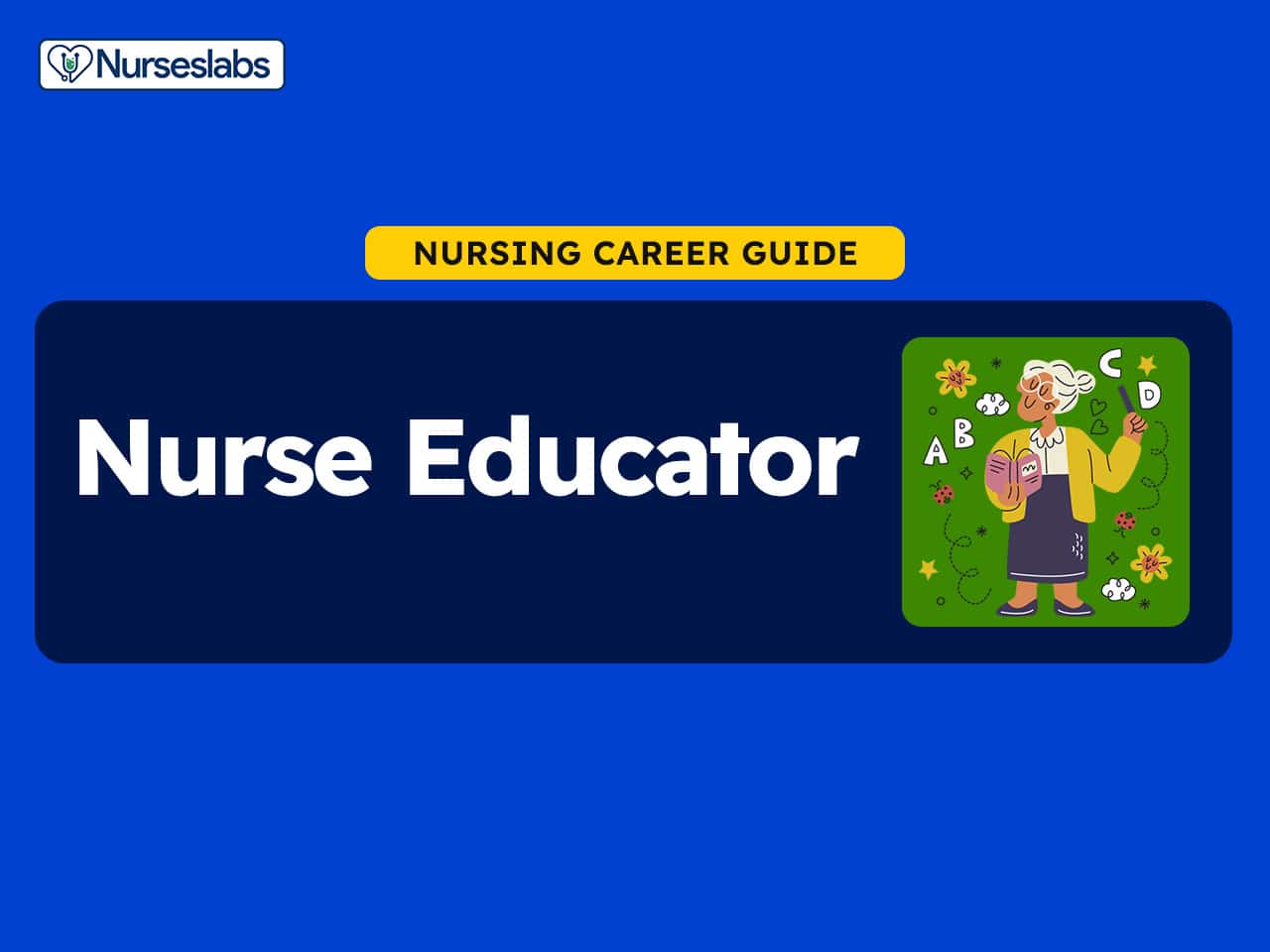


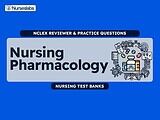
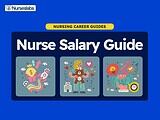
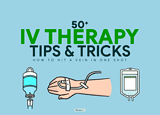
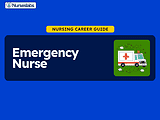
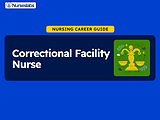
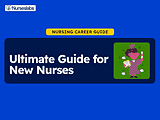
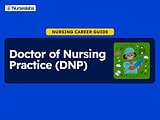


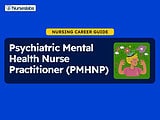
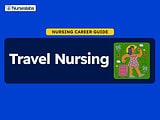
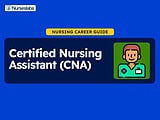

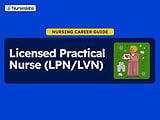

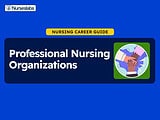
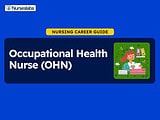
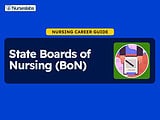

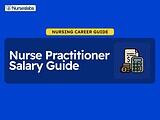
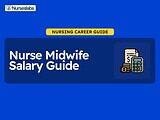
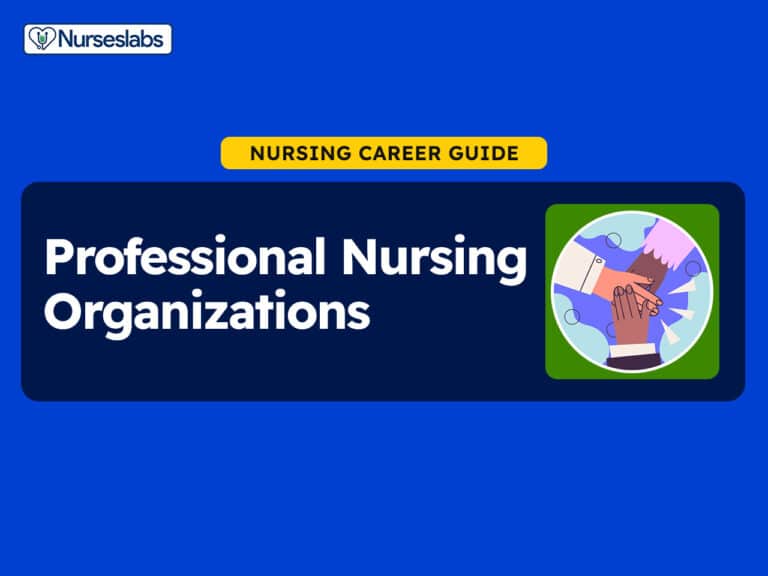
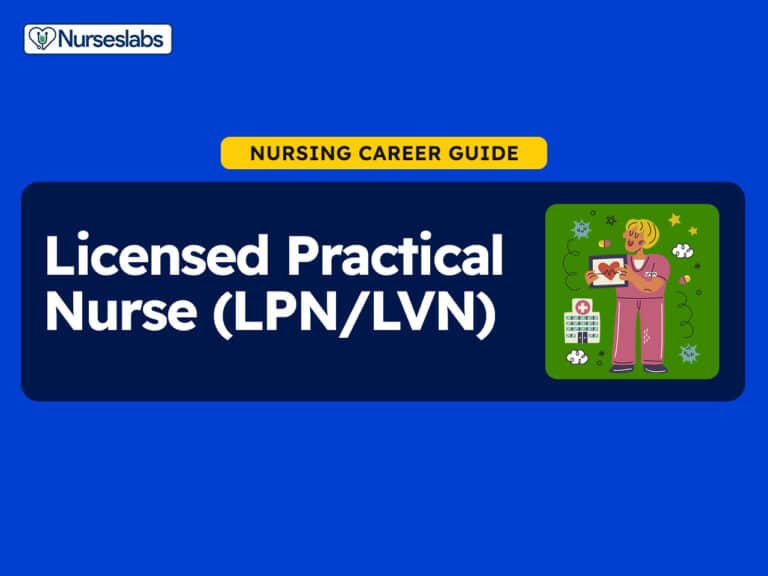
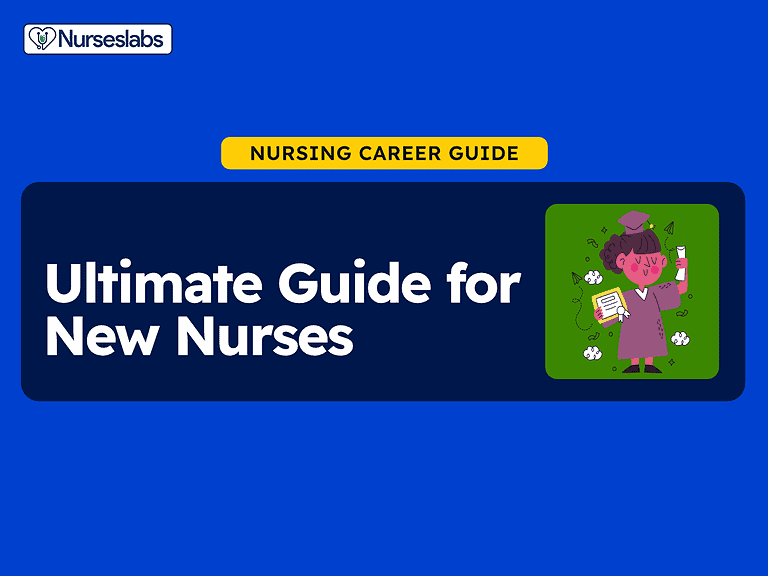
Leave a Comment